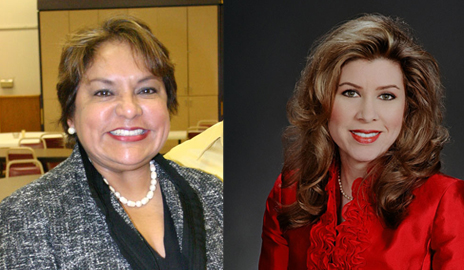Council members respond to letter from Resource Center Dallas questioning why no cases have been prosecuted in 9 years
JOHN WRIGHT | Online Editor
wright@dallasvoice.com
Two Dallas council members said this week they’re investigating the city’s handling of complaints under a 2002 ordinance that prohibits discrimination based on sexual orientation.
Councilwomen Angela Hunt and Pauline Medrano announced their investigation in response to a Jan. 31 letter from Resource Center Dallas, questioning why the city hasn’t prosecuted any complaints in the nine years since the ordinance took effect.
Resource Center Dallas’ letter came in the wake of Dallas Voice reports about a discrimination complaint filed against the Baylor Tom Landry Fitness Center, an East Dallas gym that refuses to sell family memberships to same-sex couples.
Hunt said she’s “deeply troubled” by the Tom Landry Fitness Center’s policy and has asked city officials to keep her posted on their investigation of the complaint.
“We’ve also requested that the city attorneys look into each of the 40 complaints that have been filed since 2002 and investigate why none has been prosecuted,” Hunt said. “They anticipate that their analysis should be finished within a couple of weeks and I will be taking a very close look at this.”
Medrano said she’s working with both the City Attorney’s Office and the Fair Housing Office, which is charged with investigating discrimination complaints before turning them over to the City Attorney’s Office for review — and possible prosecution.
“Each of their offices will make a list of the files, including the names of the complainants, the date of the complaint and what the discrimination involved — i.e. housing or employment, etc. — and how the complaint was resolved,” Medrano said. “The lists will be then be reconciled to make sure we have located and reviewed all the complaints. So I’m hoping to get that list, and when I do I definitely will share it.”
Councilwoman Delia Jasso, who also received a copy of the letter from Resource Center Dallas, couldn’t be reached for comment.
Dallas Voice filed a request under the Texas Public Information Act this week seeking statistics on the number of complaints that have been filed under the ordinance and their dispositions.
A 2008 investigation by the newspaper determined that at the time, there had been 33 complaints filed under the ordinance. In 22 of those cases, the City Attorney’s Office determined that there was no cause to prosecute. Of the other 11 cases, three were successfully resolved through mediation; three people withdrew their complaints after signing statements indicating that defendants had taken actions necessary to address their concerns; five complaints were found to be nonjurisdictional, meaning the incidents occurred outside city limits or defendants were exempt from the ordinance; and in one case the party filing the complaint couldn’t be located.
The ordinance prohibits discrimination based on sexual orientation in employment, housing and public accommodations. The definition of sexual orientation includes gender identity and expression. Each violation of the ordinance is punishable by a fine of up to $500.
Beverly Davis, director of the Fair Housing Office, said this week that while her office was still working to compile statistics, she believes there have been roughly 50 complaints filed under the ordinance since 2002.
“We do everything we can when we get a complaint to make sure that the ordinance is enforced and that individual rights are protected as outlined in the ordinance,” Davis said. “It’s something that we take very, very seriously.”
Rafael McDonell, who drafted Resource Center Dallas’ letter to Hunt, Medrano and Jasso, said this week he was pleased to hear they are looking into the matter.
“It’s encouraging that they’re going back and putting these cases under a microscope,” he said. “Our concern is just based on statistics, there would be at least a couple of cases they would have moved on. The fact that they’re going to review all of them and make sure they didn’t miss something is a good thing.”
Other Texas cities with bans on discrimination against LGBT people, including Austin and Fort Worth, also have human rights commissions.
“I think the commission over in Fort Worth has been really strong in terms of how they have led on not just LGBT issues, but all human rights issues, and it would be great to have something like that here in Dallas,” McDonnell said. “Ultimately what I hope comes out of this process is a strong commitment to using the nondiscrimination policy to its best end. Policies are only as good as how they’re carried out.”
This article appeared in the Dallas Voice print edition Feb. 18, 2011.
















